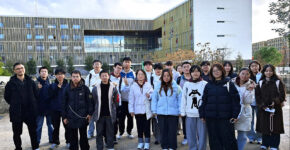"Bridging minds, shaping futures: transdisciplinarity in research"
This event has passed!
As part of CHARM-EU’s Doctoral researcher summer school 2025, the University of Montpellier is proud to host the "Bridging minds, shaping futures: transdisciplinary in research" conference, a series of talks by nine inspiring speakers from across the CHARM-EU university alliance.
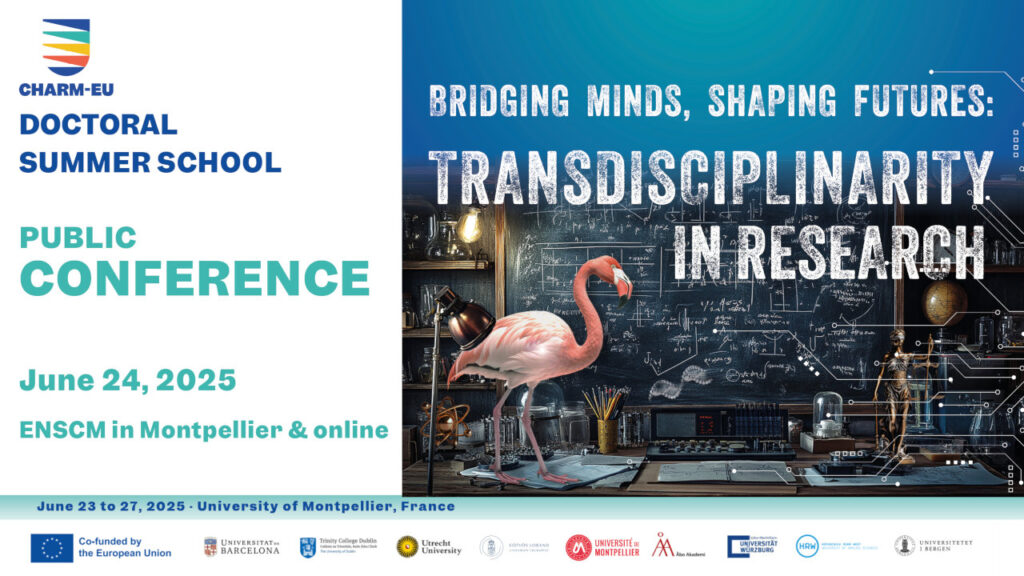
Bringing people and knowledge together, connecting communities, combining ways of thinking... Transdisciplinary research is more necessary than ever to address the increasingly complex, interconnected, and global challenges facing the world. Issues simultaneously affecting health, the environment, food, politics... If we want to provide sustainable and impactful solutions, we must connect knowledge and ideas across geographical and academic boundaries. And we must do so while promoting rich interactions with civil society, businesses, and citizens.
Inspired by the CHARM-EU Doctoral researcher Summer School’s theme of Developing transdisciplinary practice to tackle complex challenges, the conference will provide attendees with an overview of projects underway at universities within the CHARM-EU alliance, with insight from researchers who place transdisciplinarity at the heart of their work. Specialising in philosophy, law, physics, hydrogeology, epidemiology and medicine, the speakers will illustrate to, doctoral candidates, teaching staff, and researchers how transdisciplinarity can move research forward.
Conference program
8:30–9:00 a.m. – Welcome coffee
9:00–9:15 a.m. – Opening remarks
by Philippe Augé, President of the University of Montpellier
Follow-up to the 2024 Interdisciplinary Thesis Awards Ceremony of the Doctoral College of the University of Montpellier
9:15 a.m.–12:30 p.m. – Morning session
9:15–9:50 a.m. – Laura Hellsten, Åbo Akademi University, Finland
The Transdisciplinary Toolbox: what I learnt when doing ethnographic research in an interdisciplinary research project.
Learn more
Building on the findings from the fieldwork in an interdisciplinary research project, and the transdisciplinary collaborations she has been helping to facilitate, she will share best practices and speak about the skills and competences needed for transdisciplinary research. Expanding on Lawrence et. al (2022) descriptions of inter-, multi- and trans- disciplinary research, this lecture will give tools for how we can navigate towards getting the benefits of orientation knowledge, system knowledge, process knowledge and transformational knowledge in our collaborations.
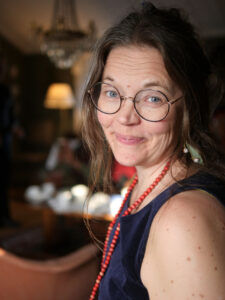
Laura Hellsten
Postdoctoral researcher in theology
Åbo Akademi University in Turku, Finland
PhD systematic theology
In her first post-doctoral position, in the Stiftelsen Åbo Akademi foundation Centre of Excellence BACE, Laura Hellsten studied the interaction of a team of physics, chemistry and cell biology researchers. The BACE collaboration centered on developing a platform for bioelectronic activation that enables the control of cell signals and, thereby, the stimulation of cell functions. Hellsten did ethnographic fieldwork with the research group investigating questions of ethics and science communication.
To study science communication, Hellsten further developed and led the research project Avtryck i det okända – Forcing the Impossible (2020-2022), which created transdisciplinary collaborations between artists and researchers in the broader context of Åbo Akademi University.
She is principal investigator for the research project: Praxis of Social Imaginaries – a Theo-artistic Intervention for Transdisciplinary Knowledge (2024-2028). This project brings together three different components: theological understanding of social imaginaries, cosmologies and polysemous reading practices, artistic research methods of intervention, and indigenous or traditional ways of knowledge production including listening and storytelling. Through creating nomadic and community based symposia where the project brings together people from across the Nordic region, with students and researchers from Åbo Akademi Univeristy and the global south, as well as artists and activists to transdisciplinary symposia and art based dialogue sessions, it is aiming to cultivate practices of wisdom, ask bold questions, and train critical inquiry into how colonial patterns are influencing society and universities today.
9:50–10:25 – Mircea Sofonea, University of Montpellier, France
Interdisciplinarity is key in health crisis management: insights from Montpellier’s research for pandemic surveillance and control.
Learn more
The unprecedented outburst of the recent pandemic called for rapid and accurate quantitative assessments to best inform public health responses. This presentation will provide an overview of the research that have been carried out in Montpellier since early 2020 on the SARS-CoV-2 epidemic in metropolitan France, at the interface between virology, evolutionary biology, public health, and applied mathematics. More generally, and in the light of five years' hindsight, the place of real-time quantitative interdisciplinary approaches during health crises will be discussed, in terms of generating novel evidence, supporting decision-making, and contributing to society’s awareness and trust.
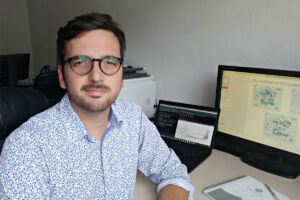
Mircea Sofonea
Associate professor in Epidemiology and Evolution of Infectious Diseases
University of Montpellier, France
PhD infectious disease evolution
Pathogenesis and control of chronic and emerging infections (PCCEI) research unit (PCCEI), University of Montpellier, INSERM
Epidemiologist at Nîmes University Hospital (CHU) (CHU)
Biologist and applied mathematician by training, Mircea T. Sofonea is an associate professor at the University of Montpellier, where he oversees spatial analysis, biostatistics, epidemiology, and population dynamics courses to biology, pharmacy and medicine students. Trained in anti-infective therapeutics and health information, he is also an epidemiologist at Nîmes University Hospital (CHU).
Within the Pathogenesis and Control of Chronic and Emerging Infections research unit (University of Montpellier, INSERM), he co-leads the modelling thematic addressing basic and applied questions related to the epidemiology, evolution, and control of respiratory viruses. An executive member of the local university hospital’s Federation of Infectiology (FHU TIE) and of the Modelling Network of the National Agency for Emerging Infectious Diseases (ANRS | MIE), he co-organizes yearly transdisciplinary events on infectious diseases. As a member of the Air & COVID committee of the French Agency for Food, Environmental and Occupational Health & Safety (ANSES), he regularly provides expertise to media and decision-makers.
Since 2022, Mircea T. Sofonea is head of research at the ExposUM Institute, in charge of accelerating interdisciplinary projects on environmental health led by the University of Montpellier and its partners, aiming to establish an interdisciplinary, off-site institute dedicated to exposome research and environmental health. The exposome encompasses the lifelong set of environmental and social factors that, combined with individual intrinsic characteristics, influence the onset, progression, and severity of both infectious and non-communicable diseases. The ExposUM Institute explores the exposome through four complementary approaches: biological mechanisms of exposure, environmental exposure monitoring, host-pathogen-vector ecology, and the interplay between the exposome and human health.
The institute is structured around three core missions: research, training, and science-society engagement. These axes work in synergy, organizing annual calls for proposals and providing leadership for Montpellier’s exposome research community, currently supporting over 40 projects. Aligned with its scientific and societal ambitions, ExposUM fosters interdisciplinarity, new collaborations, a One Health and Global Health perspective, regional resource mobilization, and open, sustainable research.
10.25-11.00 - Judit Mádl-Szőnyi, Eötvös Loránd University, Hungary
From groundwater flow to societal climate adaptation: a transdisciplinary journey.
Learn more
Hydroclimatic extremes, such as droughts and water surpluses, have profound impacts on vast regions, populations, and economies. Ensuring a reliable water supply for both humans and ecosystems presents a significant challenge. Groundwater, often overlooked, plays a crucial role in balancing wet and dry periods. Managed Aquifer Recharge (MAR) is a technique that stores excess water during rainy seasons for use during droughts. The NaBa-MAR approach, developed by the ELTE Hydrogeology Group, was implemented in the ClimEx-PE project of the CHARM-EU universities. This project integrates local MAR methods with regional groundwater flow understanding to mitigate extreme hydrological events. Efficient dissemination of this approach to decision-makers and the public is essential. The presentation will showcase the development of the NaBa-MAR concept, its physical demonstration for educational purposes, and its implementation possibilities through a comprehensive campaign targeting societies and stakeholders.
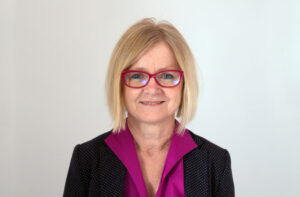
Judit Mádl-Szőnyi
Associated professor in Hydrogeology
Eötvös Loránd University, Hungary
PhD, DSc, hydrogeology
Head of József and Erzsébet Tóth Endowed Hydrogeology Chair
Vice-dean for strategic and innovation affairs of ELTE Faculty of Science
Judit Mádl-Szőnyi specialises in hydrogeology, focusing on regional groundwater flow systems and basin hydrogeology. With over three decades of teaching and research, she has significantly contributed to understanding groundwater driving forces, flow patterns, and connections between groundwater flow systems and vegetation patterns.
Her research group has gained international recognition for their work. She has developed groundwater flow models for deep carbonate aquifers and promoted nature-based managed aquifer recharge. Her interdisciplinary research also addresses climate change and impacts on groundwater, adaptation options, and sustainable geothermal energy use. Her work has influenced academic circles and contributed to practical applications in environmental management and policy-making. Additionally, she is actively involved in mentoring the next generation of hydrogeologists, fostering a collaborative and innovative research environment. Since 2011, she has chaired the Regional Groundwater Flow Commission of the International Association of Hydrogeologists (IAH) and led over fifteen R&D projects, including prestigious European projects. Her most notable award is the IAH Presidents’ Award.
Over the last decades, through Shell, MOL R&D, and European innovation and development projects, Judit Mádl-Szőnyi has adapted her knowledge for hydrocarbon exploration and energy transition goals, including geothermal energy and related mineral resources. Judit Mádl-Szőnyi is the principal investigator of the Water4All project ClimEX-PE, launched in 2024 among partner universities of the CHARM-EU alliance. This transdisciplinary project involves scientists from various fields of natural science and researchers with strong socio-legal expertise while also paying special attention to public engagement through communication and education.
11:00–11:15 – Coffee break
11:15–11:50 a.m. – Mark Oelmann, Ruhr-West University of Applied Sciences, Germany
Transdisciplinarity in water: chances, challenges and best practices.
Learn more
Transdisciplinarity is a noble goal. For many projects, this transdisciplinary approach is a basic prerequisite that the most diverse perspectives have actually been incorporated. This is the only way to ensure that implementation of results can be successful. At the same time, the results of the various disciplines should flow into one another. If they do not, the researchers are not pulling in the same direction. But aren't they wasting a lot of time along the way? After all, the aim of a scientist is to publish papers. And to do so for their own discipline…. Can we get out of this dilemma?
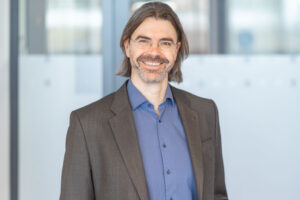
Mark Oelmann
Professor of Water and Energy Economics
Ruhr-West University of Applied Sciences, Germany
PhD economics
Mark Oelmann is the director of the BWL – Energy and Water Management bachelor's program at the Ruhr-West University of Applied Sciences. At the heart of this program is strong and diverse collaboration—for example, in the context of dual study programs—with companies and service providers in the energy and water sectors. As a researcher, he conducts economic and political studies on water-related issues and is interested in different forms of water pricing. He is also involved in topics related to digitalization, such as machine learning and change management.
Mark Oelmann has been greatly contributing to a better integration of an economic perspective into water management thinking. Over 25 years in the water sector and other adjacent network sectors, he worked in investment banking at Deutsche Bank, as a managing consultant at the internationally renowned Capgemini Consulting and a department head at the Scientific Institute for infrastructure and communication services (WIK) GmbH. He collaborates with the German federal ministry of Education and research (BMBF) on international water issues, most recently on water and agriculture in Pakistan. A part of his work is focusing on developing and emerging countries: Albania, China, Iran, Indonesia, Yemen, Uganda…
As an economist and a cultural anthropologist, Mark Oelmann is the spokesperson for the Water Economics and Water Management interdisciplinary research focus at Ruhr West University of Applied science, an interdisciplinary topic involving the Institute of Economics and the Institute for Civil engineering and intending to foster a transformation process towards sustainable water management. He is also co-partner and co-managing director of the consulting company spun off from Ruhr West University of Applied science: MOcons. Strongly committed to water issues, he’s participating in a volunteer network supporting start-ups in building a more sustainable energy future.
11:50 a.m.–12:25 p.m. – Quique Bassat, Barcelona Institute for Global Health (ISGlobal), Spain
Global health in a nutshell: issues and threats.
Learn more
We live in a world of contrasts. Your birthplace will significantly determine your chances of surviving and thriving, whether you are born healthy or sick. In this talk, some of these health inequities will be examined, as well as some of the current trends in global health, including the threat that infectious diseases still pose to health globally. This will be analysed in the context of a changing planet, with all the uncertainties emerging from the climatic crisis, that unknown to many, is going to affect the health of all, but most significantly that of children being born in the poorest areas of the world.
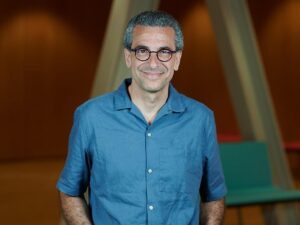
Quique Bassat
Pediatrician
Director of the Barcelona Institute for Global Health (ISGlobal), Spain
PhD medicine
ICREA research professor
As a pediatrician with special interest in infectious disease epidemiology and public health, Quique Bassat has attempted to combine his clinical work with biomedical research in those diseases that most affect the poor and vulnerable. His main area of interest has been the prevention and treatment of malaria in childhood, with a particular focus on understanding the clinical overlap of malaria and other common pediatric conditions. His research has also covered the new paradigm of malaria eradication, with a particular interest in evaluating the role of drugs in elimination strategies.
He has also conducted work on the description of the epidemiology and etiology of respiratory infections (viral and bacterial), diarrheal diseases, and neonatal infections in places such as Mozambique, Morocco or Bhutan. Currently, his main interests are related to the validation and implementation of minimally invasive autopsy (MIA) tools for the post-mortem investigation of causes of death in the developing world. He is also working on the validation and evaluation of low-cost technological devices that can be used to improve health in low-income countries.
Since 2024, Quique Bassat is the director general of the Barcelona Institute for Global Health (ISGlobal), where he leads a team of nearly 600 people committed to improving global health and promoting health equity. ISGlobal is the result of an innovative alliance between the “la Caixa” Foundation, academic institutions and government bodies to contribute to the efforts undertaken by the international community to address health challenges in a globalized world. This consolidated hub of excellence in research takes its expertise from the world of health care, with the Hospital Clínic of Barcelona and the Parc de Salut MAR, and the academic sphere, with the University of Barcelona and Pompeu Fabra University.
12.25-12.55 - Panel session
With Ronald Österbacka, Mircea Sofonea, Judit Mádl-Szőnyi, Mark Oelmann, and Quique Bassat.
1:00 p.m. to 2:00 p.m. – Lunch break
2:00 p.m. – 5:10 p.m. – Afternoon session
14:05–14:40 – Jennifer Edmond, Trinity College Dublin, Ireland
The reality of imaginaries? Exploring the present and future of applied literary studies.
Learn more
The humanities fields have long been a conundrum when it comes to transdisiciplinarity. This presentation will look at the way in which literature seems to be emerging as a category of evidence within applied research without what one would expect as the natural parallel development of a transdisciplinary arm of literary studies. It will ask questions about why this might be and what enablers might be needed to better integrate literary scholarship and its potential 'users,' looking particularly at the context of the current state of tension between culture and advancing knowledge technologies such as AI.
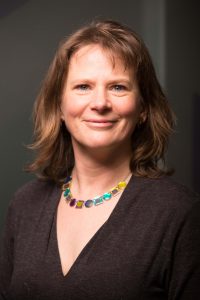
Jennifer Edmond
Associate professor in Digital Humanities
Trinity College Dublin, Ireland
PhD Germanic languages and literatures
Co-director of the Trinity Center for Digital Humanities
Jennifer Edmond is an internationally recognized expert in the application of arts and humanities insight to academic and societal challenges arising at the intersection of information and communication technologies and culture. Her ambition is to utilize her position of leadership in the digital humanities to significantly progress consolidation of the emerging subfield of the critical digital humanities. Most of her publications are in open access.
Former president (2018-2022) of the board of directors of the pan-European research infrastructure for the arts and humanities DARIAH-EU, Jennifer Edmond has played a leadership role in numerous strategic developments at national and institutional level. She has lent her expertise in the development of infrastructure to a wide variety of initiatives and agencies, from the food manufacturing industry through to the Korean national maritime agency. She has coordinated many significant large-scale interdisciplinary research projects, like CENDARI FP7 (2012-2016), a collaborative European digital archival infrastructure. She was also a partner in the related infrastructure cluster PARTENHOS, whose objective was to strengthen the cohesion of research across several related fields associated with the humanities.
KT4D is her most recent project on AI, big data and democracy. Led by Trinity College Dublin with a consortium of twelve partner organizations, the Knowledge Technologies for Democracy (KT4D) project is investigating how democracy and civic participation can be better facilitated in the face of rapidly changing knowledge technologies such as artificial intelligence (AI) and big data. This in order to enable actors across society to capitalize on the many benefits these technologies can bring in terms of community empowerment, social integration, individual agency, and improved trust in both institutions and technological instruments while identifying and mitigating potential ethical, legal and cultural risks.
2:40–3:15 p.m. – Isabel Feichtner, Julius Maximilian University of Würzburg, Germany
Reorienting law towards the common(s).
Learn more
This presentation will inquire into the role of law and lawyers in social ecological transformation. With reference to social movements against appropriation of and value extraction from the common, it will present a concept of transformative law with three dimensions: first, “counterlaw” that dismantles legal infrastructures of value extraction; second, transformative interpretation of (property) rights; and third, an organization law for the commons. The presentation will further seek to illustrate how transformative law may be furthered through transdisciplinary research within and outside the university.
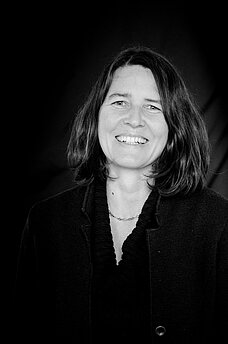
Isabel Feichtner
Professor of Public Law and International Economic Law
Julius Maximilian University of Würzburg, Germany
Dr. jur., LL.M (Cardozo Law School)
Founder of the Law Clinic Transformation Law
Isabel Feichtner’s research work is grounded in practice. After her studies, she was admitted to the New York Bar and worked for the New York office of the law firm Cravath, Swaine & Moore as a corporate associate in the securitization department for one year. Her research interests cover the distributive effects of law, the democratization of society, and the law of the commons and commoning. She explores how institutional experiments, such as the redesign of money or commons public partnerships, can support social-ecological transformation through democratization and commoning. Her expertise includes international law, law and political economy, international law of natural resource extraction and the law of money and finance.
From 2022 to 2024, Isabel Feichtner was fellow at The New Institute in Hamburg, a residential fellowship program based in Hamburg and designed to nourish transformation through interdisciplinary and trans-sectoral collaboration, where she chaired the program Reclaiming Common Wealth: Towards a Law and Economy of Land Commons. This program explored pathways, processes, and institutional designs for the generation and governance of land commons, aiming to address discontents arising from institutional investments in land, assess theories and concepts of property and value, and establish a repository of the law and institutional design of land commons.
Isabel Feichtner founded the Law Clinic Transformation Law, both a teaching format and a forum for transdisciplinary research to explore how law may serve as a building block of a democratized political economy. She considers this project as an attempt to democratize law and legal education for social-ecological change, strongly believing that transformative law must rethink and redesign the institutions and infrastructures at the core of political economy, such as property, money, and the corporation.
3:15 p.m. - 3:30 p.m. – Coffee break
3:30 p.m. – 4:05 p.m. – Rasmus Slaattelid, University of Bergen, Norway
Transdisciplinarity as academic multiculturalism.
Learn more
This talk will build on experiences from research and teaching in interdisciplinary and transdisciplinarity contexts. The calls for transdiciplinarity give raise to legitimate worries about a watering-down of discipline-based foundational education and research. “You must learn to crawl before you walk” is the general idea, or more generally, in order to develop interdisciplinary competencies, a solid foundation built in a single discipline is needed. With some examples from current and completed transdisciplinary projects, as well as from teaching experiences at the SVT, this presentation will be an opportunity to sketch a translational approach to transdisciplinarity inspired by Collins and Evans' concept of "interactional expertise".
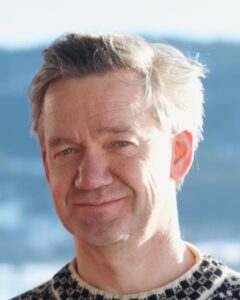
Rasmus T. Slaatelid
Professor of Philosophy of Science
University of Bergen, Norway
PhD philosophy
Head of the Centre for the study of the sciences and the humanities (SVT)
Rasmus Slaattelid is a Professor of Philosophy of Science and Head of the Centre for the Study of the Sciences and the Humanities at the University of Bergen. This Centre teaches courses for PhD students on philosophical, societal and ethical problems of science and technology, and conducts research on corresponding topics. Both the research and the teaching activities require dialogue across scientific disciplines and academic cultures, but also across different forms of knowing and knowledge practices.
Rasmus T. Slaattelid’s main research is the translation between knowledge cultures. He is involved into few research groups at the University of Bergen. His most recent research work is accessible online. Published in 2023, the book Translations of Responsibility : Innovation Governance in Three European Regions tells the story of how a Horizon 2020-funded research project translated responsible research and innovation (RRI) into practice, all the way from philosophy of technology to EU policy jargon, to the project contract, and finally into the real-life events in these regions. In 2020, a group of European researchers got a European Union (EU) grant to do a project called TRANSFORM. The objective of this project was to integrate the principle of responsible research and innovation (RRI) into the research and innovation policies of three European regions: Lombardy, Brussels, and Catalonia. The book analyses the broader context of the desire for better governance of technoscience and proposes to think of governance in technoscience, rather than governance of technoscience. On the same subject, the article Translating tools and indicators in territorial RRI efforts to document and evaluate the achievements in TRANSFORM using evaluative inquiry and theoretical reasoning whereas the article Transformative Translations? Challenges and tensions in territorial innovation governance | NOvation – Critical Studies of Innovation presents a comparative analysis of different territorial RRI-pilots within the project TRANSFORM and reflects on the concept of RRI.
16:05–16:40 – Iris van der Tuin, Utrecht University, Netherlands
Connective thinking: on strategies for making connections between specialized knowledges.
Learn more
Inspired by the French philosopher Michel Serres (1930-2019), this talk will reflect on institutional, research and educational experiences centered around the making of connections between specialized knowledges. It is common practice to argue that dynamically complex socio-environmental problems make such connecting more urgent than ever. But what about the university community and especially students and early-career researchers today? What boundary-crossing knowledges, skills and attitudes do they need? How can we teach such KSAs; and why? And what can current university staff learn from the younger generation? Central to this presentation are some tested strategies for connective thinking for inter- and trans-disciplinarity.
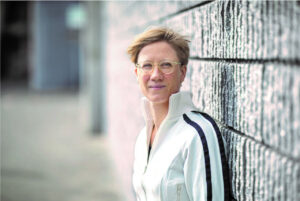
Iris van der Tuin
Professor of Cultural Inquiry Theory
Utrecht University, Netherlands
PhD humanities
Chair Theory of cultural inquiry
Dean of Interdisciplinary Education of Utrecht University
Trained as a feminist epistemologist and working as an interdisciplinarian, Iris van der Tuin works at the intersection of philosophy of science and humanities, cultural theory and critical as well as creative practices of cultural inquiry. She is interested in the new and interdisciplinary humanities and in theoretical and practice-based approaches to the research of interdisciplinary teaching and learning. The name of her chair is Theory of Cultural Inquiry as she deeply believes that there is room for philosophies and theories of knowledge enriched by reflections on humanities and how humanities do not only study the works of culture but also work together with artists.
In 2014-18, Iris van der Tuin chaired COST Action New Materialism: Networking European Scholarship on ‘How Matter Comes to Matter’. She then worked on the H2020 Ethics of Coding project: A Report on the Algorithmic Condition. In 2020, she founded the Susanne K. Langer Circle, an international and multidisciplinary group interested in the work of American philosopher Susanne Langer. She is also co-editor and founder of the book series New Materialisms book series at Edinburgh University Press and the special issue Practice-based Research of Interdisciplinary Higher Education of HSSCOMMS, a publication of the journal Nature.
Her research is part of the group Transmission in Motion of the Institute of Cultural Inquiry (ICON) of Utrecht University, a hybrid research community that brings researchers across disciplines together with artists and other external stakeholders, focusing on how technological developments reconfigure our senses. Archives are turned into ‘dynarchives,’ setting knowledge cultures in motion. Movement, gesture, and embodied interaction are also central to new insights into embodied practices of teaching and learning, creation and performance. This requires new concepts and methods, opening up to new transdisciplinary horizons for research and development, and offering new possibilities for cross-sector collaborations between the humanities, the sciences, and the arts, as well as with societal and industry partners.
Iris is also a member of the Research Institute for Philosophy and Religious Studies (OFR) of Utrecht University. This institute is the home of reflection on interdisciplinarity in research, teaching and learning from historical, philosophical and empirical points of view. Together with her group she has published Key Texts on Interdisciplinary Higher Education for Bristol University Press.
16.40 - 17.10 - Panel Discussion
With Jennifer Edmond, Isabel Feichtner, Rasmus Slaattelid, and Iris van der Tuin.
A detailed programme will be published in the coming weeks.
Registration required by June 17. Free of charge. Live (then replay) on the UM YouTube channel.
Receive a weekly summary of the UM agenda
* By entering your email address, you agree to receive a weekly summary of the UM calendar by email and acknowledge that you have read ourprivacy policy. You can unsubscribe at any time using the unsubscribe linkor by contacting us by email.
